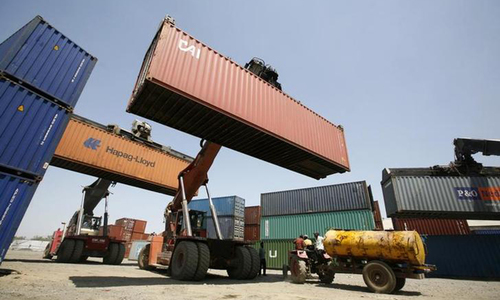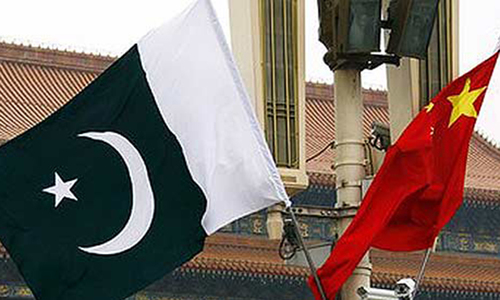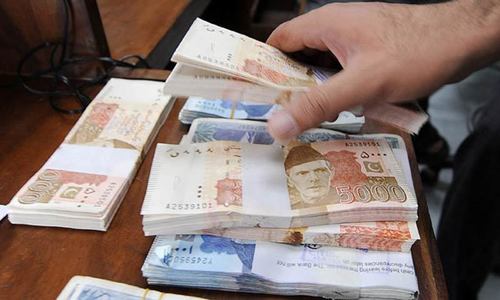Pakistan's trade deficit widens to record $30bn

ISLAMABAD: The country’s trade deficit ballooned by 42 per cent year-on-year to an all-time high of $30 billion in the first 11 months of the current fiscal year on the back of falling exports and a sharp increase in the import bill.
The country’s annual trade deficit was $20.435bn when the PML-N came to power in 2013. It has been on the rise since then due to rising imports and falling exports.
Trade deficit stood at $3.465bn in May, a rise of nearly 61pc compared to the same month a year ago, according to the data released by the Pakistan Bureau of Statistics on Monday.
Two reasons explain the trade deficit: rising import bill of capital goods, petroleum products, and food products; and a steep fall in exports despite prime minister’s support package to boost exports. The trade deficit is said to be posing a serious threat to external balance of payment.
In July-May, the overall import bill rose 20.6pc year-on-year to $48.54bn. In May alone, it increased 28pc to $5.09bn.
In the year 2012-13, the import bill was at $44.950bn. It is expected to reach over $53bn this fiscal year.
Exports fell 11pc year-on-year to $1.627bn in May after witnessing paltry growths in the previous two months. Export proceeds grew 5pc in April and 3pc in March.
Exports are in decline despite government claims of providing the industry with round-the-clock power supply since November 2014. Similarly, the government was also providing Rs3 per unit concession in electricity tariff since 2016 to export-oriented industries.
In the 11 months through May, the export proceeds fell to $18.54bn from $19.14bn a year ago.
Under a three-year Strategic Trade Policy unveiled last year, the government set an annual export target of $35bn by 2018. To boost exports, the prime minister announced a subsidy package of Rs180bn for textile, clothing, sports, surgical, leather and carpet sectors. The impact of this package on exports has yet to be seen.
The government has recently removed the commerce secretary, Azmat Ali Ranjha, for failing to promptly implement the trade policy. He was replaced by Younis Dagha, who was shunted out from the Ministry of Water and Power for his alleged failure to manage power load-shedding issues.
Under the Strategic Trade Policy 2015-18, the Ministry of Commerce notified five cash support schemes to improve product design, encourage innovation, facilitate branding and certification, upgrade technology for new machinery and plants, provide cash support for plant and machinery for agro-processing and give duty drawbacks on local taxes.
Exporters have yet to submit claims for the subsidy due to “flaws in these schemes”.
Published in Dawn, June 13th, 2017













































